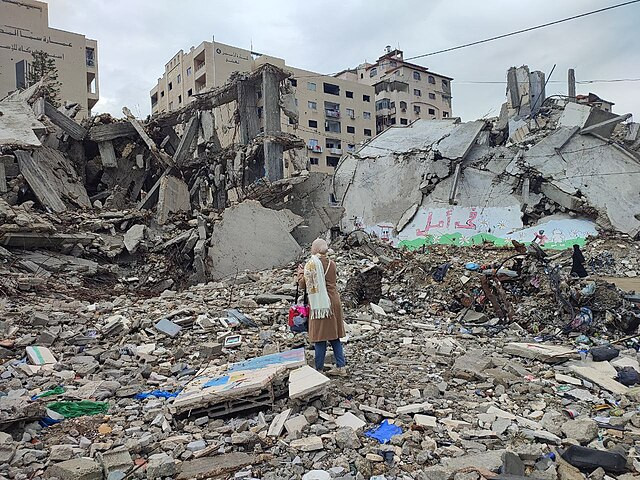Israel's decision to close its northern Gaza aid crossings on Thursday has intensified humanitarian concerns as food shortages and famine risks escalate across the Palestinian enclave. The move follows the circulation of a video showing masked men guarding aid convoys, prompting Israeli leaders to suspend deliveries over fears Hamas might be seizing supplies.
The Zikim crossing-one of the most direct and efficient routes to northern Gaza-was shuttered by Israeli authorities, who cited national security concerns. Prime Minister Benjamin Netanyahu and Defense Minister Israel Katz issued a joint statement demanding military officials develop a plan within two days to prevent Hamas from intercepting aid.
An Israeli official, speaking anonymously to Reuters, confirmed a two-day suspension of aid to allow the military time to adjust its distribution protocols. Humanitarian groups warned that the closure would cut off relief to some of the areas hardest hit by food insecurity.
Mahmud Bassal, a spokesperson for Gaza's civil defense agency, said Israeli forces killed 56 people on Thursday, including six individuals allegedly waiting for food. Though the claims have not been independently verified, medical records reviewed by international NGOs corroborate a sharp increase in bullet wounds among civilians near aid points.
Gaza's Higher Commission for Tribal Affairs rejected Israel's claim that Hamas was involved in aid operations. "The clans came ... to form a stance to prevent the aggressors and the thieves from stealing the food that belongs to our people," said Abu Salman Al Moghani, a clan representative. The group said the armed escorts were local tribal guards, not Hamas fighters.
The controversy erupted after former Prime Minister Naftali Bennett shared the video on X, alleging Hamas had commandeered Israeli-sanctioned aid. Right-wing members of Netanyahu's coalition echoed those claims, applying additional pressure on the government to curtail relief efforts unless safeguards were enacted.
Aid groups and the United Nations have repeatedly warned of a "critical risk of famine" in Gaza, home to roughly 2.3 million people. A tight Israeli blockade imposed throughout March and April has paralyzed the delivery of food, medicine, and other essentials. While the blockade was partly eased in May, humanitarian officials say the resumed restrictions could tip the region back into catastrophe.
Amjad al-Shawa, head of a coalition of Palestinian NGOs, said the convoy in question had been protected by clans to ensure delivery to the most vulnerable.
The World Health Organization said Thursday it had delivered nine truckloads of medical aid-its first shipment since March 2-but described the contribution as "a drop in the ocean." Only 17 of Gaza's 36 hospitals are partially operational, according to the agency.
Since the war began on October 7, 2023, after Hamas killed roughly 1,200 people in Israel and took 251 hostages, Israel has conducted a military campaign that has killed more than 56,000 people in Gaza, most of them civilians, according to health authorities in the territory.






